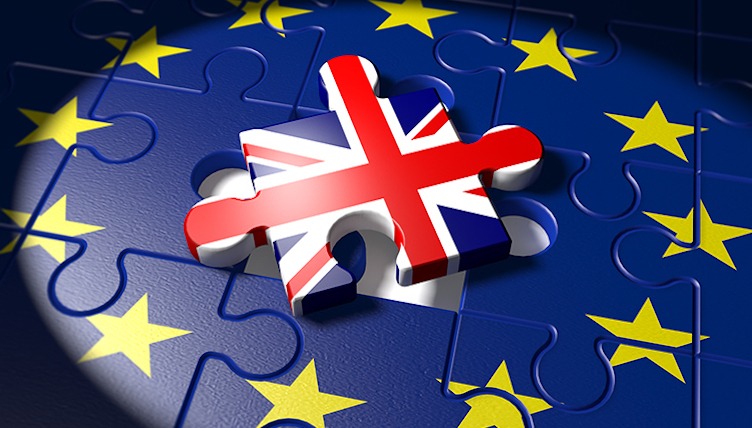Pharma in a Post-Brexit World: What’s Next?
The European Parliament formally approved last month the EU–UK pact under Brexit, which governs trade and customs issues. The pact has been applied conditionally since the beginning of 2021, but there are some concerns about its implementation. What issues are surfacing, and what’s the impact on pharma?
Brexit deal comes to a final approval
The EU-UK Trade and Cooperation Agreement, which is the trade and customs pact between the European Union (EU) and the UK, came into effect on May 1, 2021 following the ratification of the pact by the European Parliament and the European Council late last month, marking the end of a nearly five-year process, beginning with a public referendum supporting the UK’s withdrawal from the EU in June 2016 and now finally arriving at an agreed pact defining the future relationship between the UK and the EU.
The agreement, which governs trade and customs issues and provides for zero tariffs and zero quotas, has been applied conditionally since the beginning of 2021, but approval by the European Parliament was needed to formally approve the pact and to avoid the so-called “no deal” between the UK and EU.
“In practice, the Agreement helps avoid significant disruptions while protecting European interests and upholding the integrity of our Single Market,” said European Commission Vice-President Maroš Šefčovič, in an April 29, 2021 statement. “It also ensures a robust level playing field by maintaining high levels of protection in areas, such as climate and environmental protection, social and labor rights, or State aid. Moreover, the Agreement includes effective enforcement, a binding dispute settlement mechanism and the possibility for both parties to take remedial measures.”
The EU-UK Trade and Cooperation Agreement consists of a Free Trade Agreement, with cooperation on economic, social, environmental and fisheries issues, a partnership on citizens’ security, and an overarching governance framework. Foreign policy, external security and defense cooperation is not covered by the agreement and the agreement does not cover any decisions relating to equivalences for financial services, the adequacy of the UK data protection regime, or the assessment of the UK’s sanitary and phytosanitary regime for the purpose of listing it as a third country allowed to export food products to the EU.
EU-UK Free Trade Agreement
The agreement covers not just trade in goods and services, but also a broad range of other areas in such as investment, competition, State aid, tax transparency, air and road transport, energy and sustainability, fisheries, data protection, and social security coordination. Highlights of the free-trade agreement between the EU and UK are outlined below.
Zero tariffs and zero quotas. The agreement provides for zero tariffs and zero quotas on all goods that comply with the appropriate rules of origin.
Environmental protection. Both parties have committed to ensuring a level playing field by maintaining levels of protection in areas such as environmental protection, climate change and carbon pricing, social and labor rights, tax transparency and State aid, with effective, domestic enforcement, a binding dispute settlement mechanism and the possibility for both parties to take remedial measures.
Transport. On transport, the agreement provides for continued and sustainable air, road, rail and maritime connectivity, although market access falls below what the EU’s Single Market offers. It includes provisions to ensure that competition between EU and UK operators takes place on a level playing field, so that passenger rights, workers’ rights and transport safety are protected.
Energy. On energy, the agreement provides a new model for trading and interconnectivity, with guarantees for open and fair competition, including on safety standards for offshore and production of renewable energy.
Movement between the UK and the EU. On social security coordination, the agreement aims at ensuring a number of rights of EU citizens and UK nationals. This concerns EU citizens working in, travelling, or moving to the UK and to UK nationals working in, travelling or moving to the EU.
R&D. The agreement enables the UK’s continued participation in a number of EU programs for the period 2021-2027 (subject to a financial contribution by the UK to the EU budget), such as Horizon Europe, the EU’s R&D investment program.
Implementation and governance
One of the issues addressed in the agreement is a governance structure and dispute mechanisms, which are seen as important to implement the agreement. To give maximum legal certainty to businesses, consumers and citizens, a dedicated chapter on governance provides clarity on how the Trade and Cooperation Agreement will be operated and controlled. It also establishes a Joint Partnership Council, which will make sure the agreement is properly applied and interpreted, and in which all arising issues will be discussed.
Binding enforcement and dispute settlement mechanisms will ensure that rights of businesses, consumers and individuals are respected. This means that businesses in the EU and the UK compete on a level playing field and will avoid either party using its regulatory autonomy to grant unfair subsidies or distort competition, according to information from the European Commission. The agreement foresees the possibility of adopting rebalancing, remedial, compensatory and safeguard measures.
Both parties can engage in cross-sector retaliation in case of violations of the Trade and Cooperation Agreement. This cross-sector retaliation applies to all areas of the economic partnership. Specific suspension clauses apply to the cooperation on law enforcement and judicial cooperation in case a party breaches its obligations.






